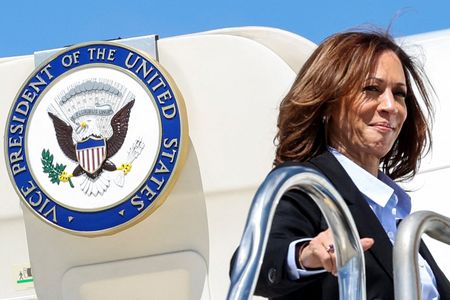By Luc Cohen
NEW YORK (Reuters) – Manhattan prosecutors started and stopped the investigation that culminated in Donald Trump’s upcoming criminal trial so many times that it came to be known as a “zombie case,” like the mythical character who returns from the dead.
The first-ever criminal trial of a former U.S. president is set to begin on April 15.
Trump stands accused of concealing his reimbursement of former lawyer Michael Cohen for a $130,000 payment to porn star Stormy Daniels before the 2016 election in exchange for her silence about a sexual encounter she says they had in 2006.
Trump has pleaded not guilty to 34 counts of falsifying business records and has denied an encounter with Daniels, whose real name is Stephanie Clifford.
Manhattan District Attorney Alvin Bragg launched the probe after his predecessor Cyrus Vance twice looked into the hush money payment and did not bring charges, in part because winning a conviction would rely on untested legal strategies, according to a book by Mark Pomerantz, a former prosecutor in the office.
When Vance considered the charges, doubts arose as to whether state felony charges could be brought against a candidate for federal office, according to the book, “People vs. Donald Trump,” published in February 2023.
“The bottom line for me was that the ‘zombie’ case was very strong,” Pomerantz wrote. “But was it a crime under New York law?”
Pomerantz resigned in February 2022, less than two months into Bragg’s tenure, after the district attorney declined to bring separate financial crime charges against Trump.
Trump, the Republican presidential candidate for the November election, has called the probe a witch hunt. Bragg is a Democrat.
In a November 2023 court filing, Bragg’s office said the hush money probe remained open while it pursued tax fraud charges against the Trump Organization, which resulted in the family real estate company’s conviction at trial in December 2022.
“The decision to focus investigative and prosecutorial resources on various other aspects of a holistic investigation … is a reasonable and valid explanation for the timing of the charges in this case,” prosecutors wrote.
‘UNTESTED THEORY’
According to Pomerantz, Vance’s office looked into the payment in 2019, after federal prosecutors in the U.S. Attorney’s Office in Manhattan finished their own case.
In the federal case, Cohen pleaded guilty to campaign finance violations and testified that Trump directed him to pay Daniels.
Federal prosecutors said Trump’s real estate company reimbursed Cohen and falsely accounted for it as a legal expense, but never charged Trump with a crime.
Pomerantz wrote that since Trump was a candidate for federal office, Vance decided it was uncertain whether intent to conceal a federal crime could support state-level charges.
But the theory is at the heart of Bragg’s case. His office said Trump was seeking to conceal violations of federal campaign finance laws, since the payment to Daniels exceeded contribution limits, as well as a New York law barring promotion of a candidacy by “unlawful means.”
Trump’s lawyers have said the October 2016 hush money payment was meant to spare himself, his family and his business the embarrassment of public attention to Daniels’ story, not to benefit his presidential campaign.
Bragg’s office says it routinely charges falsification of business records for cover-ups of federal crimes. But as many of those cases have resulted in guilty pleas, the theory has not been tested on appeal, said Boston University law professor Jed Shugerman.
Still, Bragg’s theory has won backing from two judges. U.S. District Judge Alvin Hellerstein last year denied Trump’s bid to move the case to federal court, finding there was no exemption in the state’s false records law for federal election-related activities
Trump later sought to dismiss the charges by arguing federal election law violations could not form the basis for state charges, but Justice Juan Merchan – who will preside over the trial – denied that motion in February.
‘BACK INTO THE GRAVE’
Pomerantz wrote that he revived the hush money inquiry in early 2021 under a different theory: If Daniels had been extorting Trump, then the money could be criminal proceeds and efforts to conceal that it came from Trump could constitute money laundering.
But many of his colleagues were skeptical that Daniels’ request for hush money was extortion, and he later realized the money laundering statute would not apply.
“The ‘zombie’ case,” Pomerantz wrote, “went back into the grave.”
(Reporting by Luc Cohen in New York; Editing by Noeleen Walder and Jonathan Oatis)












